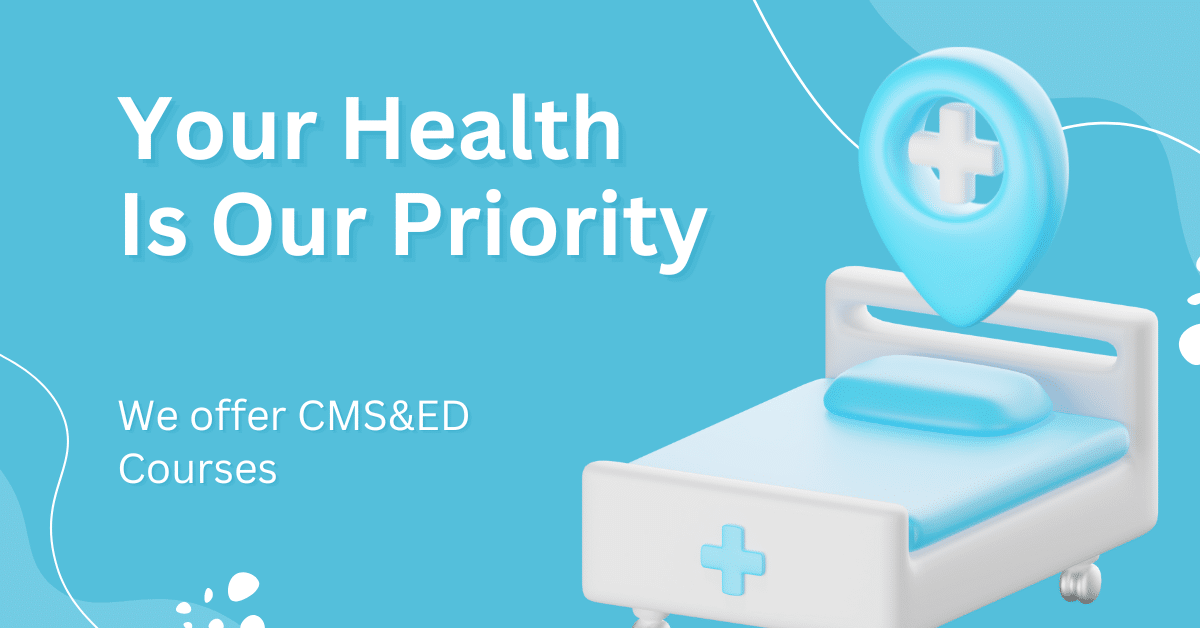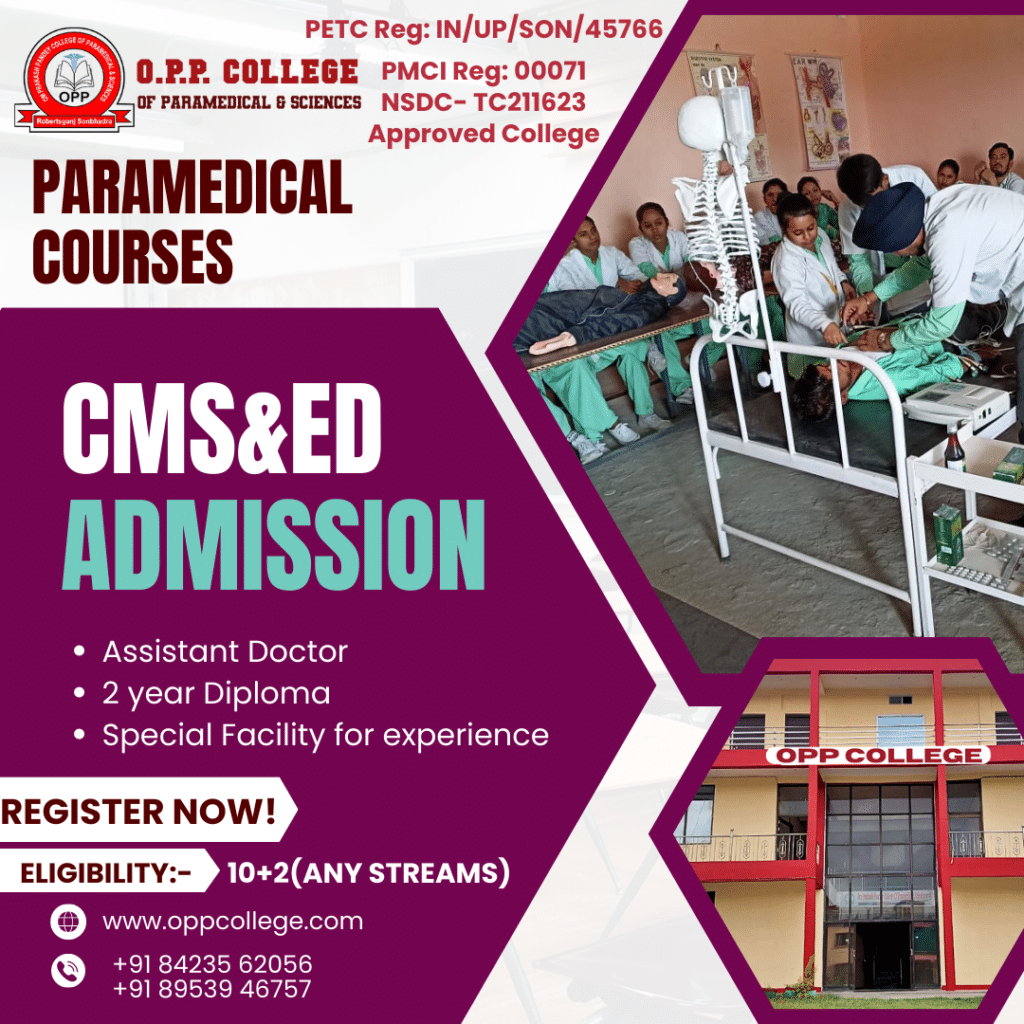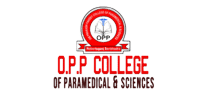
Do you know about CMS&ED Courses? Are you passionate about making a positive impact in your community? Are you eager to explore a career that combines management skills with a focus on environmental sustainability and development? Look no further than OPP College’s comprehensive CMS&ED courses! Our institution is dedicated to providing top-notch education, equipping students with the knowledge and skills needed to excel in their chosen fields.
The field of healthcare plays a crucial role in society, and with a focus on community-oriented medical services and essential drugs, the CMS&ED (Diploma in Community Medical Service and Essential Drugs) course has emerged as a pivotal program. In this blog post, we will delve into the details of CMS&ED, including its course overview, admission requirements, and the various benefits it offers to both students and communities.
CMS&ED (Diploma in Community Medical Service and Essential Drugs) Courses Details:
CMS&ED is a specialized diploma program designed to equip healthcare professionals with the necessary knowledge and skills to provide medical services tailored to the unique needs of communities. The course encompasses a comprehensive study of essential drugs, preventive healthcare measures, and primary medical care techniques.
- Introduction to CMS&ED: This foundational course introduces students to the principles of management, conservation of resources, and sustainable development practices. Topics covered include project management, environmental economics, and the importance of social responsibility.
- Medical Services Management: Understanding the management of medical facilities, resources, and staff in a community setting is essential to ensure effective healthcare delivery.
- Essential Drugs & Pharmacology: Students will learn about the selection, administration, and appropriate use of essential drugs, which are crucial in treating common ailments within communities.
- Community Development: Focused on empowering communities, this course emphasizes the importance of understanding local cultures, engaging stakeholders, and implementing development projects that promote social well-being and economic growth.
- Primary Healthcare Techniques: The course emphasizes the importance of early diagnosis and prompt treatment for prevalent medical conditions encountered in community setups.
- Environmental Policy and Governance: Students will explore the formulation and implementation of environmental policies and the role of governmental and non-governmental organizations in achieving sustainable development goals.
- Emergency Medical Services: Preparing students to handle medical emergencies and disasters within community settings is a vital aspect of the program.
- Waste Management and Recycling: Addressing the global waste crisis, this course educates students on waste management techniques, recycling processes, and how to create effective waste reduction programs.
- Sustainable Agriculture: This course highlights the significance of sustainable agricultural practices to ensure food security and environmental protection. Students will learn about organic farming, crop rotation, and responsible land use.
- Eco-Tourism and Biodiversity: Focused on the balance between tourism and nature conservation, this course examines eco-tourism principles, biodiversity preservation, and the economic benefits of protecting natural habitats.

Admission Requirements
CMS&ED courses are typically offered by reputable medical institutions or colleges. While specific requirements may vary between institutions, the common prerequisites for admission include:
- Educational Qualifications: Applicants should possess a high school diploma or an equivalent qualification. Some institutions may require specific subjects in their high school curriculum, such as biology and chemistry.
- Previous Healthcare Experience: Prior experience in the healthcare sector, either through volunteering or employment, can strengthen an applicant’s profile.
- Good Communication Skills: Strong communication skills are crucial for effective patient interaction and community engagement.
- Passion for Community Service: A genuine interest in serving communities and making a positive impact on their health is often considered favorably during the selection process.
- Entrance Examination/Interview: Some institutions may conduct an entrance examination or interview to assess the applicant’s aptitude for the program.
Benefits of CMS&ED Courses
- Filling the Gap in Community Healthcare: CMS&ED graduates play a significant role in bridging the healthcare gap in underserved communities, where access to medical services may be limited.
- Holistic Approach to Healthcare: The course emphasizes a holistic approach to healthcare, focusing not only on treatment but also on prevention and health promotion.
- Career Opportunities: Graduates can pursue careers as community healthcare workers, health educators, medical coordinators, and more.
- Community Empowerment: By empowering communities with essential medical knowledge, CMS&ED professionals enable individuals to take charge of their health.
- Flexibility and Mobility: CMS&ED professionals can work in a variety of settings, including rural areas, urban centers, and disaster-stricken regions, offering flexibility and mobility in their careers.
Job Opportunities
After completing the CMS&ED program, graduates can explore various job opportunities, including:
1. Community Health Officer: These professionals work in communities, providing primary healthcare, health education, and disease prevention services.
2. Health Project Coordinator: CMS&ED graduates may take on roles in coordinating healthcare projects and initiatives in underserved areas.
3. Healthcare Consultant: Graduates can work as consultants, providing expert advice on community healthcare strategies to organizations and government bodies.
4. Public Health Administrator: CMS&ED holders can take up administrative roles in public health departments, overseeing community health programs.
5. Non-profit Organization Worker: Many NGOs and non-profit organizations require healthcare professionals with expertise in community medical services and essential drugs.
Conclusion
The CMS&ED (Diploma in Community Medical Service and Essential Drugs) program plays a critical role in empowering healthcare professionals to serve communities in need. By addressing the unique challenges of community healthcare and emphasizing essential drug management, this diploma equips graduates with the necessary tools to make a positive impact on people’s lives. If you are passionate about improving healthcare access and want to contribute to the well-being of communities, CMS&ED could be the perfect stepping stone for your career in the rewarding field of community healthcare.
